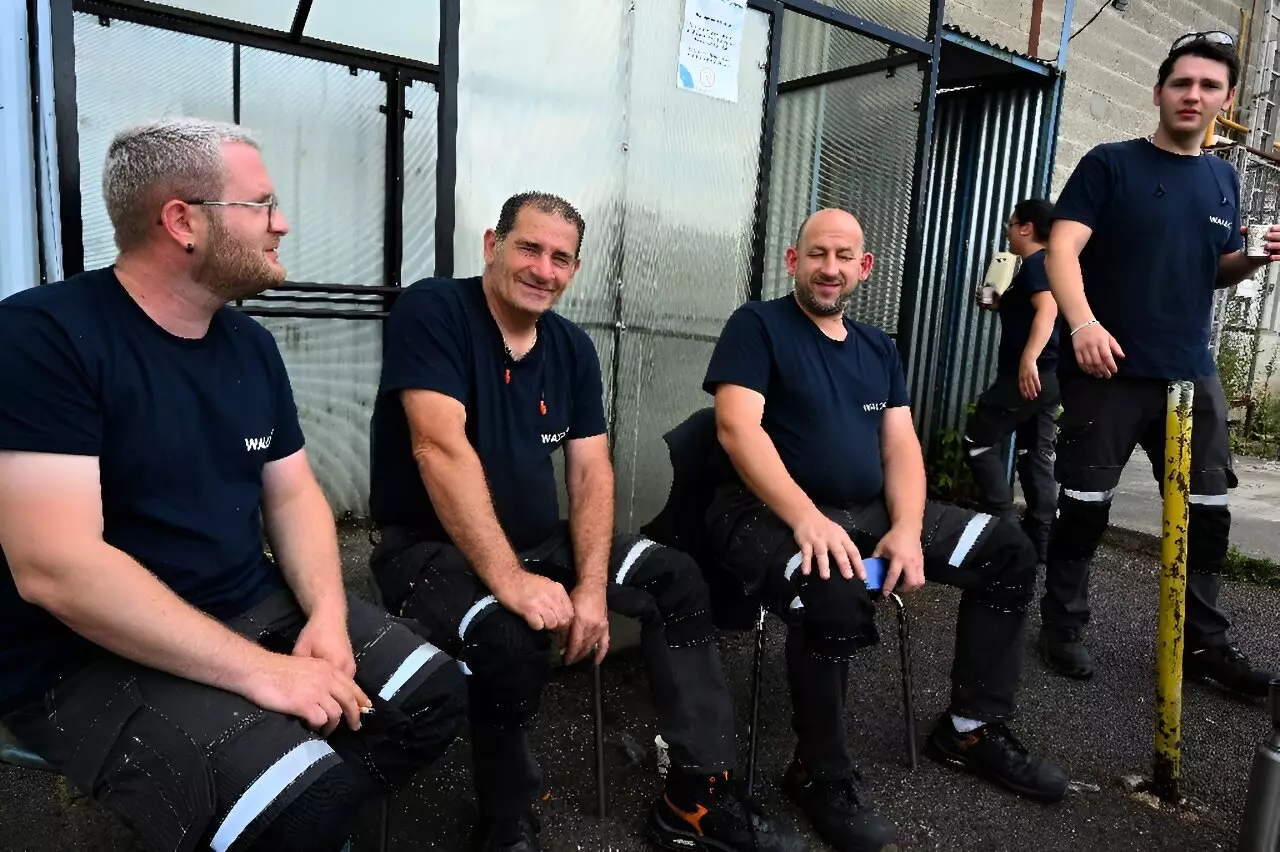As France gears up to phase out new combustion engine cars by 2035, workers in the auto industry are faced with an uncertain future. While there is a sense of optimism in certain regions like the emerging “Battery Valley” in the north of the country, employees at parts suppliers elsewhere are worried about the impending changes. With the sale of new petrol and diesel cars set to be allowed for only the next decade in Europe, the industry employing around 200,000 people in France is looking at a significant upheaval.
The transition to electric vehicles poses a significant challenge for workers like Severine Person, a quality control expert at a facility in Vouziers, who are grappling with the idea of their factory facing closure due to shrinking order books. While some companies like Walor, a part supplier for tractors and trucks, are not directly threatened by the shift to EVs, the demand for certain components like transmission differential housings and engine manifolds is likely to see a drastic change.
The mood in the north of France is vastly different, with the establishment of battery “gigafactories” offering a glimmer of hope for workers in the auto industry. Companies like the Automotive Cells Company (ACC) are building massive battery plants, creating opportunities for retraining and job creation in the region. The joint venture involving automakers Stellantis and Mercedes, along with TotalEnergies, aims to not only meet the demand for electric vehicles but also ensure a smooth transition for existing employees.
However, despite the positive developments in certain regions, the overall impact of the shift to electric vehicles on employment in the French auto industry remains uncertain. Studies suggest that as many as 65,000 jobs in the sector could be at risk by 2030, with economists like Bernard Jullien estimating job losses of around 40,000 in the auto parts sector alone over the next decade. The fear of offshoring production to cut costs looms large, with concerns that the transition to EVs could lead to a significant reduction in overall employment in the industry.
As the French auto industry navigates the challenges posed by the transition to electric vehicles, there is a pressing need for strategic planning and investment in retraining and reskilling programs for workers. While the shift to EVs presents an opportunity for innovation and growth in certain sectors, it also brings to light the vulnerabilities faced by workers in the industry. The need for collaboration between government, industry, and trade unions to ensure a smooth transition and minimize job losses is more critical now than ever before.
The shift to electric vehicles in France is set to transform the auto industry in profound ways. While there are promises of job creation and revitalization in certain regions, the looming threat of job losses and offshoring remains a major concern for workers across the country. As the industry grapples with these challenges, it is imperative for stakeholders to come together to chart a path forward that is sustainable, inclusive, and supportive of the workforce.


Leave a Reply